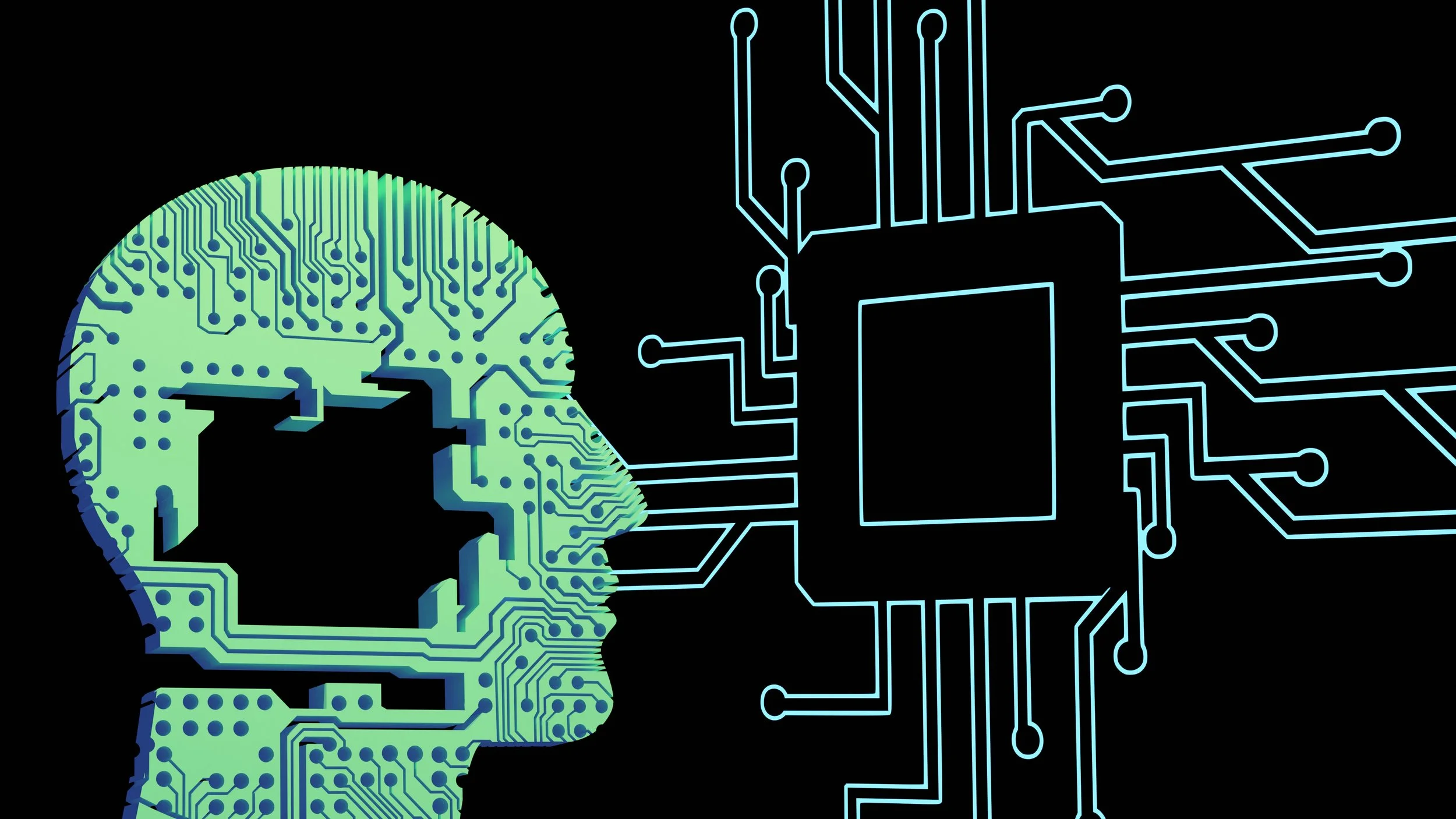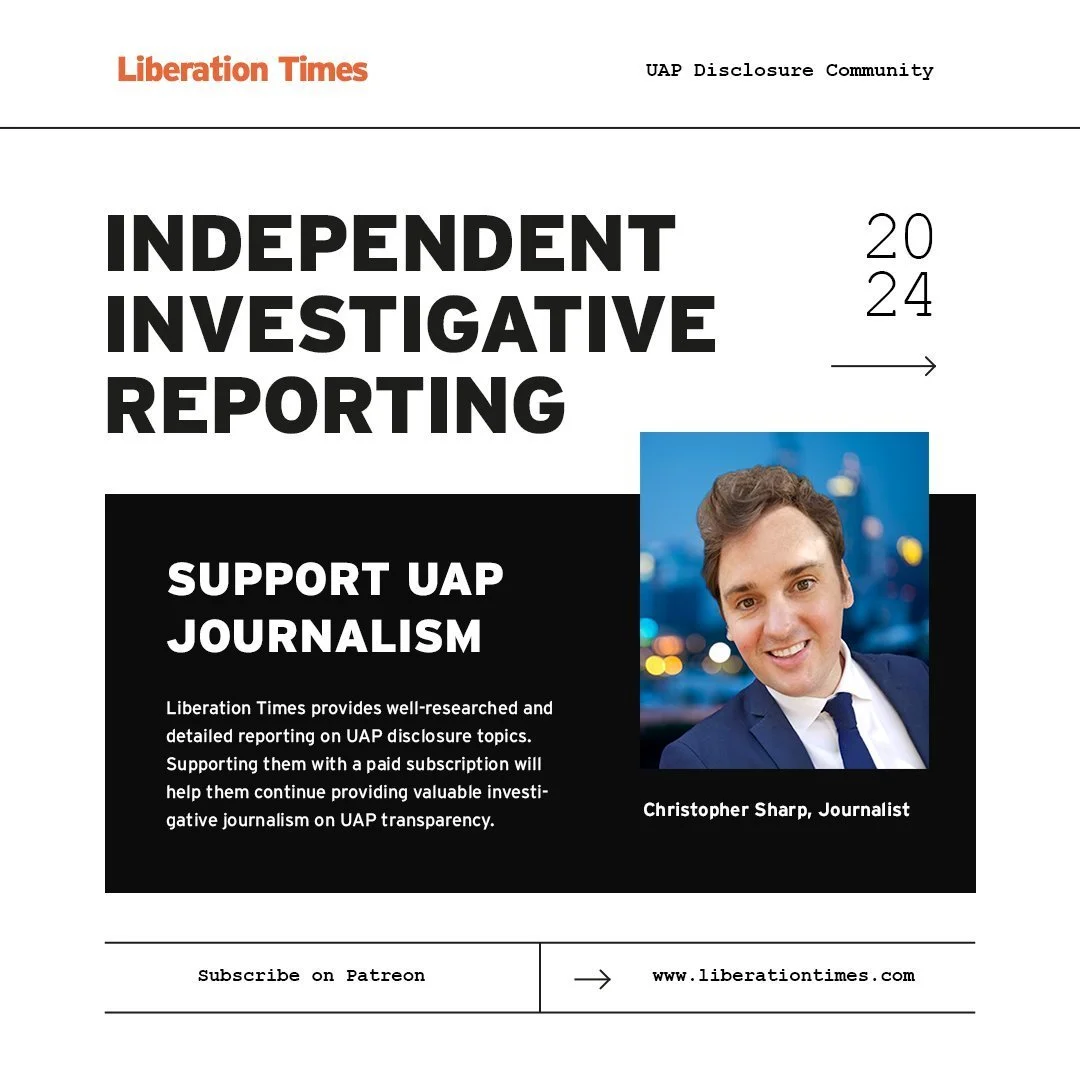Does Artificial Intelligence Make UFO Disclosure Inevitable?
Photo by Steve Johnson on Unsplash
Opinion
Written by Kevin Wright - 29 August 2025
As AI dismantles the government’s monopoly on sequestered knowledge and secrecy, UAP disclosure is inevitable. The only question is whether we manage it responsibly or watch it spiral out of control.
For the better part of eight decades, secrecy has defined the U.S. government’s handling of Unidentified Anomalous Phenomena (UAP). From the alleged crash at Roswell in 1947 to the present day, programs buried in classification, hidden contracts, and bureaucratic obfuscation have kept the public in the dark.
Members of Congress, and perhaps presidents, have been cut out of the loop, too. Scientists have been misled. The American people have been gaslit again and again and made to feel crazy for thinking UFOs are real.
But the times are changing, and the accelerating advance of artificial intelligence (AI) is altering the balance between the government and the public. With each leap forward in analytic capability, the possibility of continued secrecy diminishes.
So, AI may make disclosure not a question of if, but of when. That reality presents us with a stark choice: prepare for disclosure through lawful, structured means such as the path provided by the Unidentified Anomalous Phenomena Disclosure Act (UAPDA), or risk a catastrophic unravelling of secrecy that could destabilize markets, society, and even our constitutional order.
The impact of AI on the UAP issue is a cascading chain of cause and effect. First, AI makes it possible to detect hidden patterns. Unlike human analysts, it can process vast troves of imagery, radar tracks, astronomical surveys, flight logs, and even nuclear test records. Already, researchers are applying AI to historical data and uncovering correlations that once slipped by unnoticed. What was once deniable is now discoverable.
AI is democratizing knowledge. Intelligence agencies once held a monopoly on connecting the dots. No longer. Advanced AI tools allow journalists, academics, and even citizen investigators to cross-reference declassified records, whistleblower testimony, scientific literature, and open-source intelligence. The monopoly implodes, and the power to analyze UAP evidence disperses across society.
This democratization of knowledge is already visible in grassroots investigations. The Nightcrawler Eye in the Sky initiative, led by John and Gerry Tedesco and Donna Lee Nardo, has created a citizen-driven monitoring network that systematically captures data on unusual aerial phenomena. What once required classified sensors is now being partially replicated by citizens with advanced cameras, open-source tools, and collaboration.
As AI becomes more accessible, it will only strengthen these efforts, allowing citizen scientists to filter noise, identify genuine anomalies, and cross-reference multiple streams of evidence. The monopoly once held by governments and defense contractors is breaking down, one grassroots investigation at a time.
Together, these trends mean denialism cannot hold, forcing governments to act. They can either wait to be exposed by outsiders wielding AI, or they can get ahead of events through proactive, controlled disclosure. What was once a matter of discretion becomes a matter of necessity.
This raises the specter of catastrophic disclosure. Commentators often focus on the potential ontological shock of disclosure: the profound disorientation that could come from humanity learning it is not alone, and that non-human intelligences have long interacted with Earth.
These new understandings alone would be epochal. But there is another, equally destabilizing potential shock that receives less attention: the public’s eventual realization of the scale of secrecy and deception carried out by the U.S. government in the name of national security.
That recognition could devastate trust in all three branches of government: the Executive for perpetrating the deception, the Legislative for failing to assert oversight, and the Judiciary for allowing itself to be sidelined or manipulated. The result would be an institutional shock, an implosion of faith in the constitutional order itself.
And the crisis would not stop at loss of faith in the government alone.
The shock would radiate outward. The complicity, or at least the silence, of powerful sectors such as media, industry, religious institutions, and academia would be impossible to ignore.
If these pillars of society are seen as having looked the other way, or worse, as having actively participated in suppressing the truth, then trust in them could plummet as rapidly as confidence in government. Journalism’s claim to hold power accountable, academia’s commitment to open inquiry, industry’s role in innovation, and religion’s authority to speak about humanity’s place in the cosmos would all be undermined.
The result could be a meltdown of faith not just in the constitutional order, but in the very institutions that frame culture, knowledge, and meaning in modern American life.
Here lies perhaps the most untenable feature of the situation. If disclosure arrives suddenly, the government will be forced to explain how, after spending trillions of dollars on intelligence, defense, surveillance, and space programs since Roswell, it somehow knew nothing of UAP or non-human intelligences.
But that claim would implode under its own weight. Americans know that our government can track a single cellphone in the Hindu Kush, monitor missile launches from geosynchronous orbit, and surveil the planet with unmatched sophistication. The notion that such systems and capabilities have remained unaware of advanced craft operating in Earth’s skies, seas, and orbit is implausible.
The only credible conclusion the public would draw is that officials knew and deliberately concealed the truth. That realization would compound the ontological shock of NHI contact with the institutional shock of systemic betrayal. In other words, the cover-up itself could become more damaging than the existence of the phenomenon, whatever it might be.
This is why the UAPDA is not merely desirable but necessary. It offers a lawful, structured, and constitutional pathway to transparency that can prevent such a dual-shock scenario.
The Act would establish an independent UAP Records Review Board empowered to identify, secure, and release UAP-related records and materials. Its eminent domain provision would ensure that privately sequestered technologies of unknown origin are lawfully brought under U.S. custody with compensation and judicial review. That last element is vital: it would provide due process, something wholly absent from covert seizures under national security claims with no judicial review.
Beyond legality, the UAPDA enables orderly disclosure. Instead of uncontrolled leaks or adversarial exposure, information would be sequenced, explained, and contextualized. Exotic materials would be safely managed.
Legitimate national security concerns could be addressed without blanket suppression. Markets could be stabilized by pairing revelations with scientific validation and safeguards against monopolistic exploitation. And the public could absorb the truth in stages, supported by independent review, rather than in one destabilizing burst.
Most importantly, the UAPDA would restore constitutional balance. It would reassert Congress’ oversight authority, ensure the judiciary retains a role in reviewing eminent domain and compensation claims, and limit the Executive Branch’s ability to bury information indefinitely. In short, it demonstrates that American democracy is capable of correcting itself, rather than collapsing under the weight of its own secrecy.
Some support the UAPDA on moral grounds: the public has a right to know. That is true, but it is no longer the strongest argument.
The stronger case is strategic. Disclosure is coming, whether governments want it or not.
AI ensures that the tools of concealment will fail.
The only question is whether disclosure will arrive lawfully and rationally, or instead through a crisis accompanied by the risk of collapse.
Without the UAPDA, our government risks being overtaken by events, forced into disclosure, and faced with not only the ontological shock of NHI but the institutional shock of a cover-up laid bare.
With the UAPDA, the nation has a chance to reveal the truth responsibly, preserve constitutional integrity, and lead the world into a new era of understanding.


